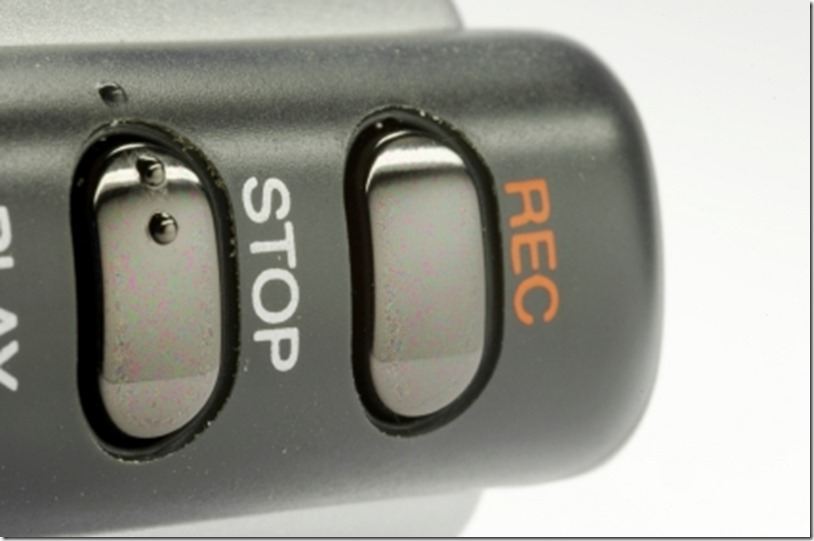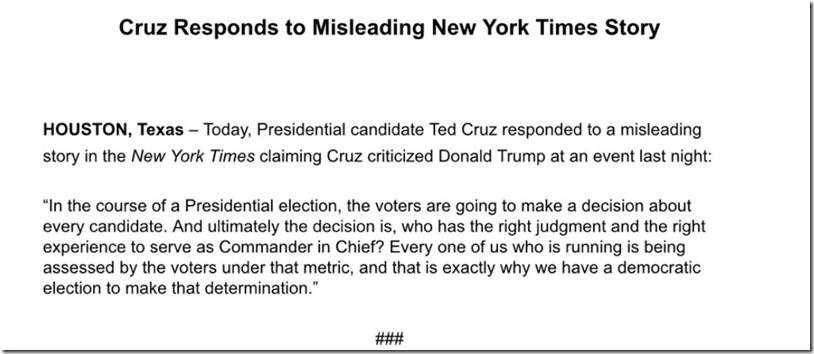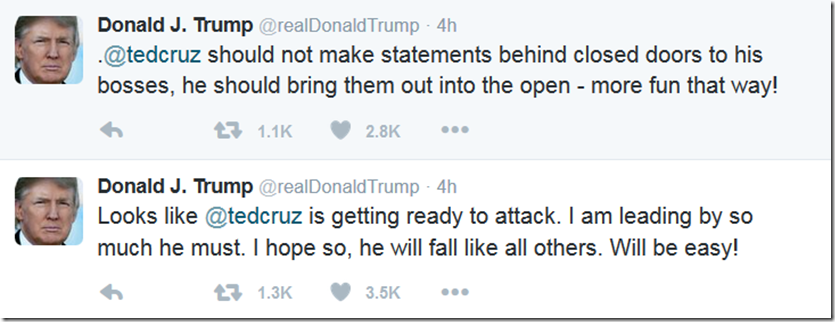Oops! I Have That Thing You Just Denied Saying On Tape.
I recently heard a story about a company spokesperson who got himself into trouble during a media interview.
While speaking to the reporter, he called one of his group’s critics (and occasional partners) a pejorative term. (To protect his confidentiality, I won’t use the actual phrase, but it was something along the lines of ‘bunch of goofballs.’)
When the article came out, their critic was furious—but so were the higher-ups at his own organization, who didn’t appreciate the unnecessarily inflammatory rhetoric.
The spokesperson denied everything. He insisted that he hadn’t used that term and that the reporter had either misheard him or willfully distorted his words.
But there was one thing he didn’t count on. The reporter, annoyed that his integrity had been called into question, released the raw audio of the interview, in which the spokesperson could easily be heard using that phrase.
The spokesperson no longer works for that organization.

I thought of that story late last week after Sen. Ted Cruz (R-TX), a fast-rising presidential candidate, took on The New York Times for reporting something he had said at a private meeting.
Mr. Cruz gave a candid assessment of the race, lumping Mr. Trump with another candidate whose supporters the Texas senator hopes to poach, Ben Carson, according to two people present for the remarks…
“You look at Paris, you look at San Bernardino, it’s given a seriousness to this race, that people are looking for: Who is prepared to be a commander in chief? Who understands the threats we face?” He went on: “Who am I comfortable having their finger on the button? Now that’s a question of strength, but it’s also a question of judgment. And I think that is a question that is a challenging question for both of them.”
The New York Times headline that resulted from his comments was: “Cruz, at Fund-Raiser, Is Said to Question if Trump Has Judgment to Be President.”
Cruz responded not by contesting how he was quoted, but rather how his quote was characterized.

Cruz seemed to be claiming that the question of judgment is applicable to all candidates, including himself, and that he wasn’t calling out primary rivals Trump and Carson specifically.
In response, The New York Times updated its story by releasing the audio of Cruz’s comments. That audio eliminates any question that Cruz was misquoted and, to my ear, reinforces the characterization of his remarks printed by The New York Times.
Meanwhile, Donald Trump, who has been holding his fire against the Texas Senator because Cruz had been being “nice” to him, immediately spotted the opportunity to go on the attack.

The example from Senator Cruz isn’t as clear cut as the anecdote at the top of this post, but both make the same basic point: If you’re going to deny saying something, you should probably make sure audio of your comments doesn’t exist.
The easiest way to do that, of course, is to assume you’re always being recorded. That would have been enough to have prevented the spokesperson at the top of this post from creating an organizational mini-crisis.
It might also be useful to familiarize yourself with state laws regarding one- or two-party notification prior to a phone interview, although that too can provide you with a false sense of comfort.
Like the blog? Read the book! The Media Training Bible: 101 Things You Absolutely, Positively Need to Know Before Your Next Interview is available in paperback, for Kindle, and iPad.



[…] Brad Phillips: Oops! I have that thing you just denied saying on tape. […]